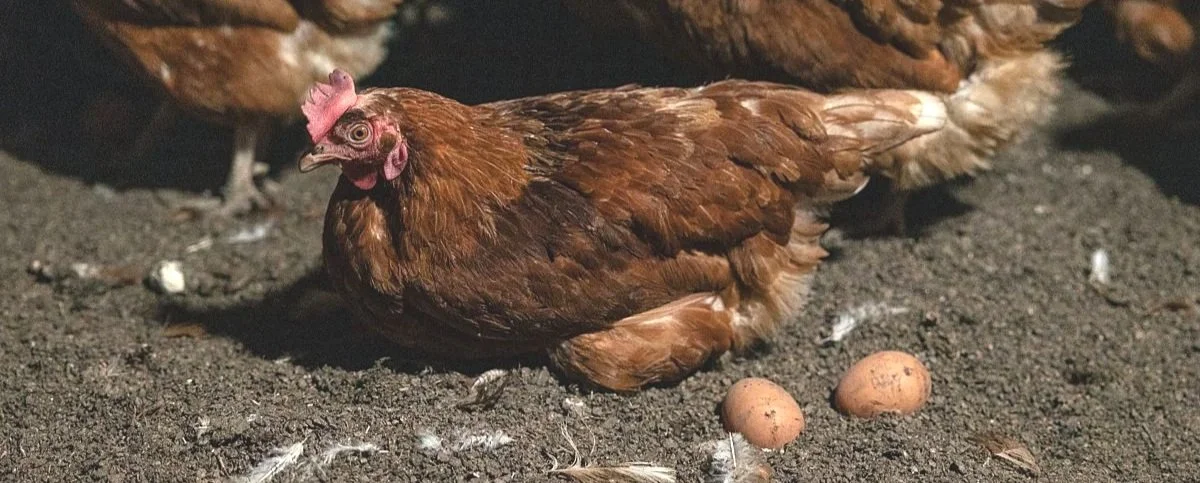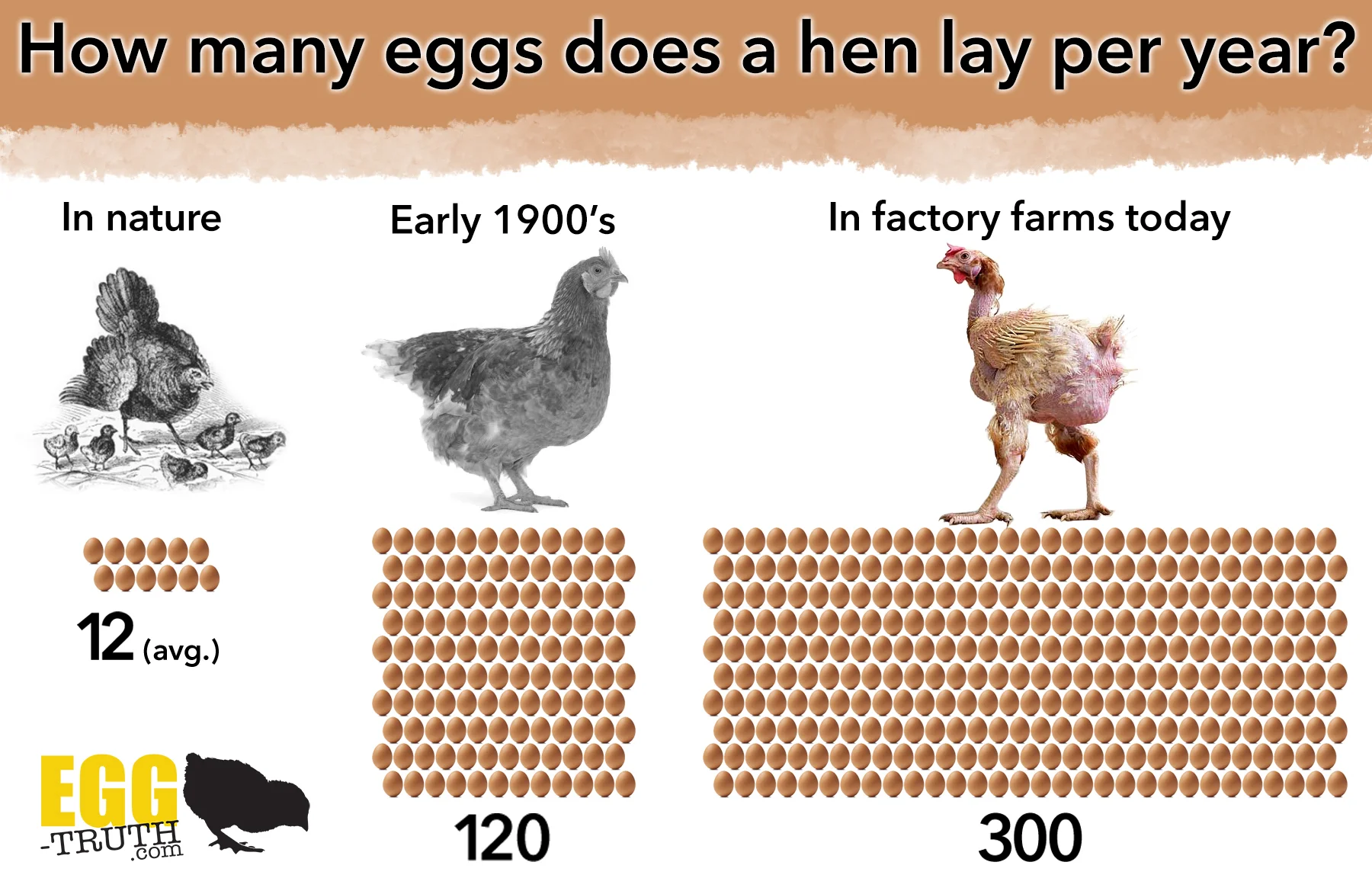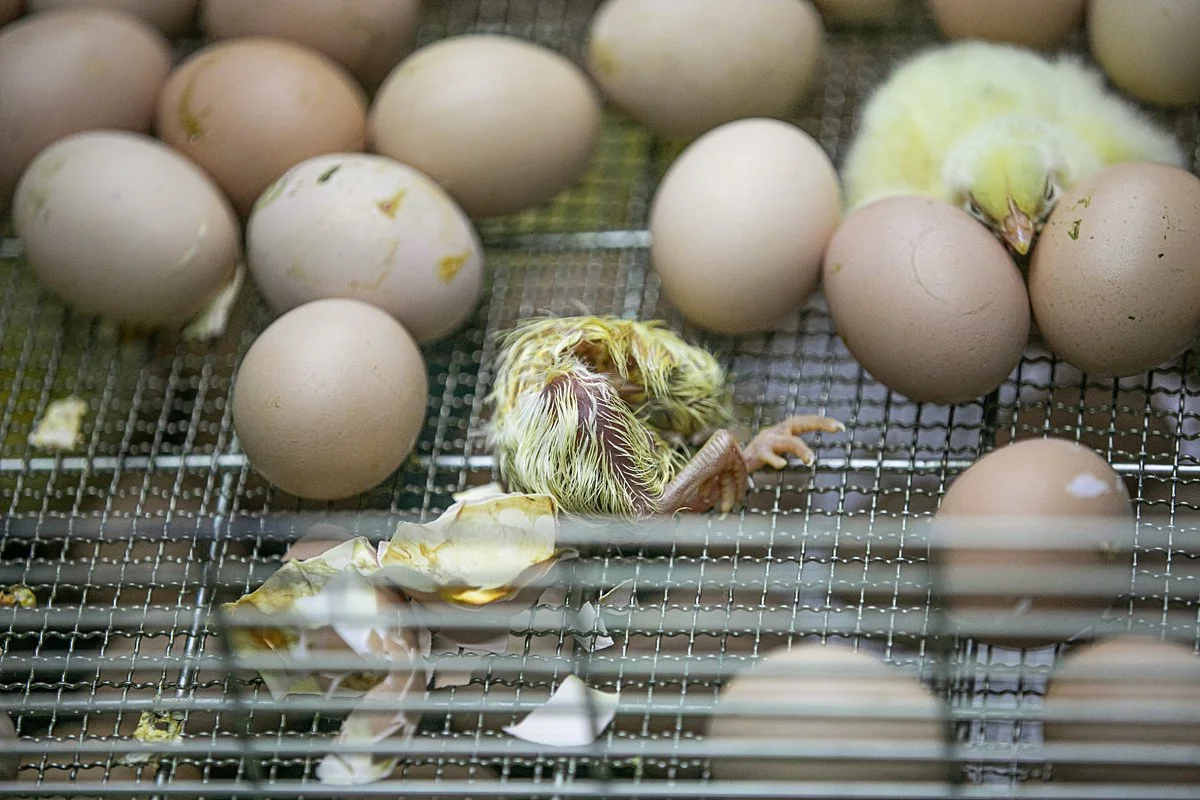Are Cage-Free or Backyard Eggs Really Ethical?
What if every egg—even the ones labeled cage-free, organic, free-range, or collected from a neighbor’s backyard—carried hidden suffering?
For decades, the egg industry has used comforting labels to reassure us we can eat eggs without guilt. But the reality is unavoidable: there is no humane or ethical way to consume eggs.
Are Cage-Free or Free-Range Eggs Humane?
Cage-free and free-range labels focus on appearances rather than ethics. A hen might not live in a tiny cage, but her body is still being used and controlled. Whether she lays inside a wire enclosure or on open grass, the outcome is the same: when she stops producing enough eggs, she is killed. The problem isn’t just the housing—it’s the system itself.
Why Were Chickens Bred This Way?
Egg consumption is only possible because chickens have been selectively bred to serve human demand. Modern hens lay about 300 eggs per year, compared to just 10–15 annually from their wild ancestors. This unnatural overproduction pushes their reproductive systems into constant overdrive, placing enormous strain on their bodies.
What Happens to Hens’ Bodies?
Through selective breeding, hens have been forced into chronic hyper-ovulation, meaning their bodies are trapped in a cycle of laying and can no longer stop producing eggs. The results are painful and often deadly. Hens suffer from:
Egg yolk peritonitis
Reproductive cancers
Osteoporosis and brittle bones
Uterine prolapse
These are not rare issues, but predictable outcomes of forcing a body to overproduce. Every egg causes invisible damage, whether or not the label says “cage-free.”
What About Roosters?
For every hen who lays eggs, there is almost always a brother who never survives. Male chicks are considered useless to the egg industry because they cannot lay. As a result, billions are killed every year, often within hours of hatching. Roosters not only face mass killing as chicks, but those who survive also suffer from the same distorted breeding that damages hens. Overloaded sex hormones take a toll on their bodies, leaving them vulnerable to illness and shortening their lives.
Are Backyard Eggs Ethical?
Many people argue that backyard eggs are different. But even small flocks trace back to the same breeding systems. Keeping or consuming those eggs reinforces the idea that hens exist for our use. As long as eggs remain a normal part of diets, chickens will continue to be bred, exploited, and discarded.
What Can We Do Instead?
If you live with hens, the most compassionate approach is to protect their health by reducing or preventing egg-laying. When eggs are laid, they should be fed back to the hens to restore lost nutrients. Any extras can be composted or returned to the earth and not placed back into human consumption.
Beyond your own hens, the best way to help is to:
Support farmed animal sanctuaries
Choose vegan egg alternatives
Share the truth about the egg industry with others
The Truth: There Is No Ethical Egg
Labels cannot cover up the reality. Cage-free, free-range, organic, or backyard. Every system still rests on the exploitation of hens and the destruction of roosters. Every egg comes at the cost of a life cut short.
The most ethical choice is to stop consuming eggs altogether. By rejecting them, we break the cycle of suffering and create a future where hens are valued for who they are, not what they produce.
Please leave eggs off your plate. Choose compassion instead.
Further Reading and Resources
How to Ditch Eggs: Guide to Egg-free Living
How to Replace Eggs: Recipes and Resources
Ready to Go Vegan? Vegan Bootcamp





